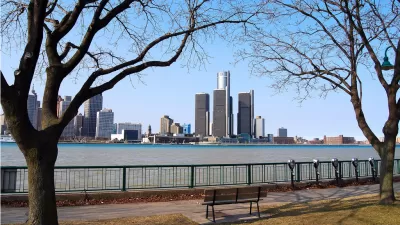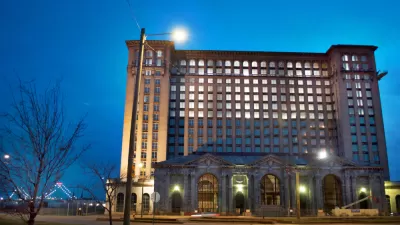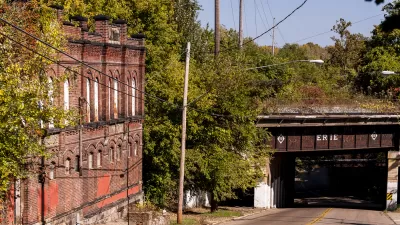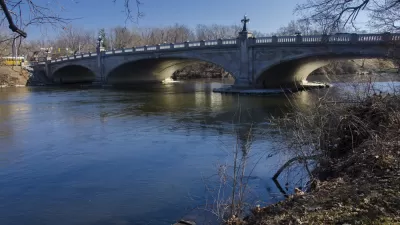The Detroit Future City Implementation Office has completed a new strategic plan that will redirect the organizations revitalization efforts, four years after the city adopted the largely successful Detroit Future City framework.

The Detroit Future City framework was adopted with great fanfare in 2013 as a strategy for Detroit to achieve economic growth while dealing with the effects of a population that had spent decades in decline.
According to an article by John Gallagher, Detroit Future City now finds itself at a bit of a crossroads. "[T]he framework's bold visions of repurposing Detroit's vacant and abandoned land in new and innovative ways has been widely accepted as a goal, if not yet actually accomplished on the ground," and the time has come again to plan for the future. Specifically, "the Detroit Future City Implementation Office, the entity set up to translate the guiding principles of the DFC framework into practice, has completed its strategic plan, a road map of where the office plans to go."
According to Gallagher, the new strategic plan directs the Detroit Future City Implementation Office toward continued efforts in neighborhood revival, a shift toward a rental market, where once homeownership dominated the landscape, and a new focus on the 900 or so vacant industrial sites in Detroit.
To put a public face on the next phase of Detroit Future City, the Implementation Office is preparing to launch a new website (launching on Monday at detroitfuturecity.com). Gallagher also speaks with Anika Goss-Foster, the executive director of the Detroit Future City Implementation Office, to get more insider's information on the new strategic plan.
FULL STORY: See what's in Detroit Future City's strategic plan

Maui's Vacation Rental Debate Turns Ugly
Verbal attacks, misinformation campaigns and fistfights plague a high-stakes debate to convert thousands of vacation rentals into long-term housing.

Planetizen Federal Action Tracker
A weekly monitor of how Trump’s orders and actions are impacting planners and planning in America.

In Urban Planning, AI Prompting Could be the New Design Thinking
Creativity has long been key to great urban design. What if we see AI as our new creative partner?

King County Supportive Housing Program Offers Hope for Unhoused Residents
The county is taking a ‘Housing First’ approach that prioritizes getting people into housing, then offering wraparound supportive services.

Researchers Use AI to Get Clearer Picture of US Housing
Analysts are using artificial intelligence to supercharge their research by allowing them to comb through data faster. Though these AI tools can be error prone, they save time and housing researchers are optimistic about the future.

Making Shared Micromobility More Inclusive
Cities and shared mobility system operators can do more to include people with disabilities in planning and operations, per a new report.
Urban Design for Planners 1: Software Tools
This six-course series explores essential urban design concepts using open source software and equips planners with the tools they need to participate fully in the urban design process.
Planning for Universal Design
Learn the tools for implementing Universal Design in planning regulations.
planning NEXT
Appalachian Highlands Housing Partners
Mpact (founded as Rail~Volution)
City of Camden Redevelopment Agency
City of Astoria
City of Portland
City of Laramie





























